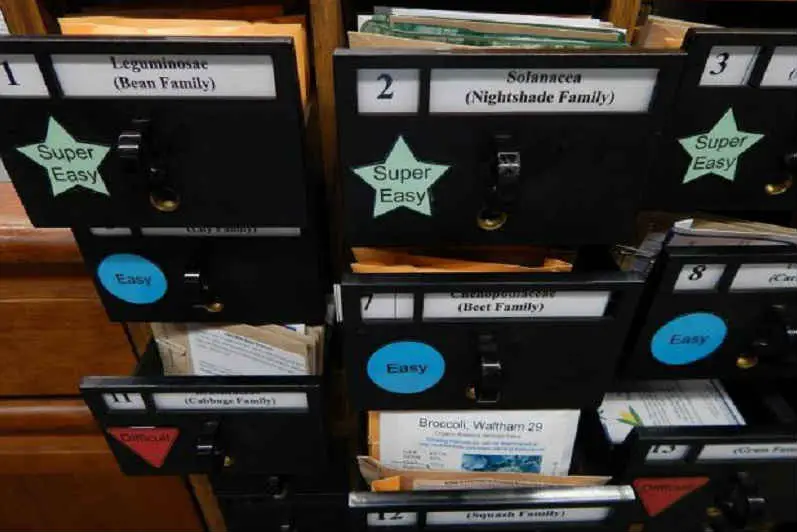As Monsanto and other large agrochemical corporations continue their ongoing push for control over the seed system, more and more grassroots activists and citizens have begun doing their own part to preserve food and seed freedom.
Saving heirloom and organic seeds and starting local seed banks are just some of the ways they’ve been able to do that, but one library in Pennsylvania found out the hard way that they system is not too fond of these practices, as their seed library in Cumberland County was shut down.
The seed bank at Mechanicsburg, PA’s Joseph T. Simpson Public Library was launched on April 26 as part of the borough’s Earth Day Festival, but one letter from the Pennsylvania Department of Agriculture put the brakes on an idea that would have given residents better access to local and healthier food.
Seed Bank Founders Stunned at Decision
According to a report from the local newspaper The Sentinel, those who started the seed bank were surprised to receive the letter, considering they had gotten information from the local Penn State Ag Extension office prior to its creation.

A seed bank in Pennsylvania was shut down; the practice was related to “agriterrorism” by a PA official. PHOTO: User submitted to The Sentinel
The seed bank was created to allow residents to “borrow” seeds and then replace them with new ones harvested at the end of the growing season.
Cumberland County Library System Executive Director Jonelle Darr told the paper that no one came across information that there would be a problem with the idea.
A total of 60 residents signed up for the seed library, but the aforementioned letter informed officials that they were in violation of the Seed Act of 2004.
“We did talk to the county extension office before establishing the seed library,” Darr told Cumberland County commissioners according to The Sentinel. “We were never apprised of the Seed Act.”
The department put great priority on the case, sending lawyers and a high-ranking official to meet with the library.
The seed act mainly focuses on the selling of seeds according to Darr, who added that the library was not actually engaging in that practice.
It also focuses on “mislabeled” seeds and the “concern” that invasive plant species, poisonous plants and cross-pollination could harm the environment.
The seed library officials were told they couldn’t have the library anymore unless its staff tested each seed packet for germination and other information, a task they were not capable of handling.
Pennsylvania commissioner Barbara Cross was unsympathetic, however, and the department has reportedly said it will keep cracking down on the seed bank operations.
Cross said seed libraries on a large scale could lead to problems, even going as far as to equate them with “agri-terrorism.”
“Agri-terrorism is a very, very real scenario,” she said. “Protecting and maintaining the food sources of America is an overwhelming challenge … so you’ve got agri-tourism on one side and agri-terrorism on the other.”
The department has said the library may now host “seed swap” days held between private individuals but may not continue the seed bank.
A summary of labeling requirements on the state’s agricultural page mentions germination information under the general labeling requirements section, along with a laundry list of other requirements that seem to stack the deck in favor of large seed producers rather than seed banks, most likely to protect their financial interests from people attempting to distribute seeds freely as nature intended.
What do you think, did the department overreact in this case? Give us your opinion in the comments below.
Thanks for installing the Bottom of every post plugin by Corey Salzano. Contact me if you need custom WordPress plugins or website design.











